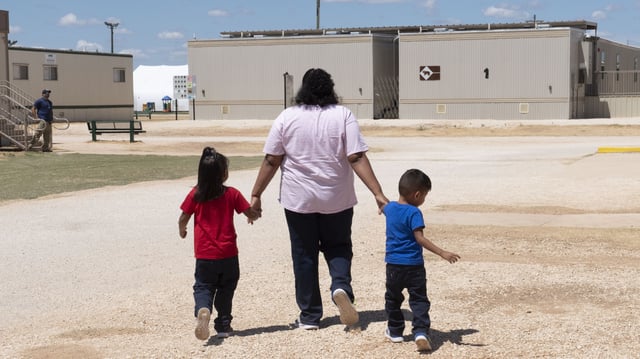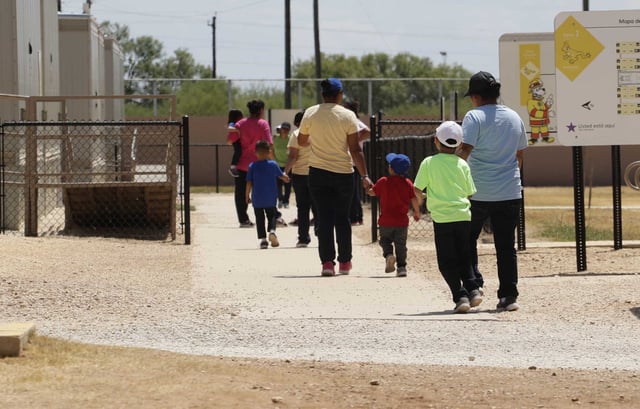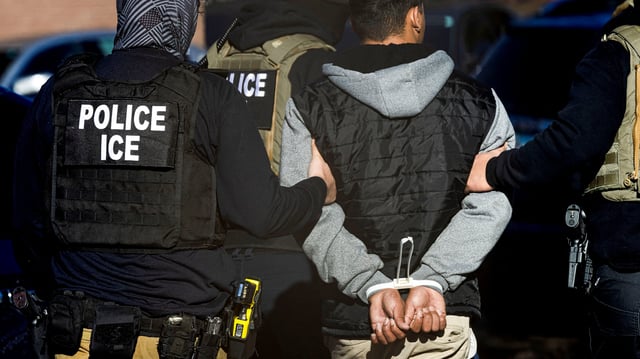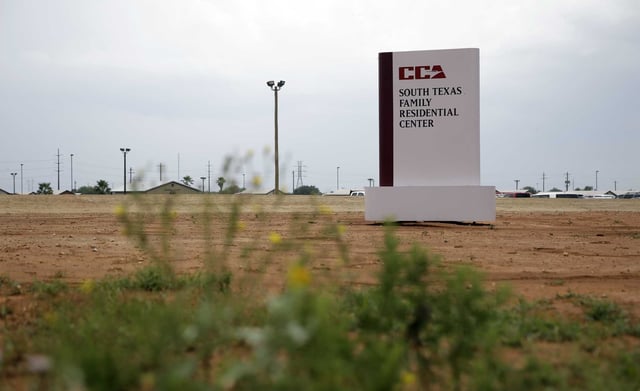Overview
- The Trump administration has resumed the practice of detaining migrant families, reopening two Texas facilities, including the 2,400-bed South Texas Family Residential Center in Dilley.
- The Biden administration had closed these centers in 2021, citing high costs and a shift toward alternatives like remote tracking technology.
- Private prison company CoreCivic, which operates the Dilley facility, expects to generate $180 million annually under a new contract running through 2030.
- Advocacy groups and lawmakers have condemned the move, citing past allegations of neglect, abuse, and inadequate medical care at these facilities, including reports of a child’s death in 2018.
- The Trump administration plans to expand mass deportations, with Immigration and Customs Enforcement (ICE) targeting families, even those without criminal records, for detention and removal.



